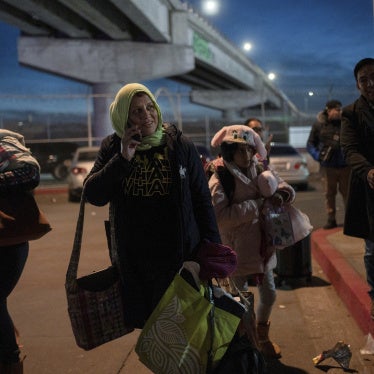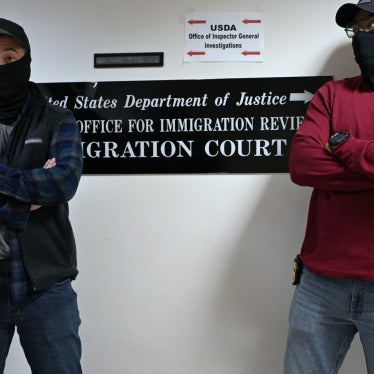Following the Supreme Court’s ruling that the concertina wire that Texas National Guard rolled out on the banks of the Rio Grande can be removed by federal agents, the Biden administration should not wait a moment longer to direct federal agents to take it down. On different days and months apart in 2023, both of us witnessed asylum-seeking families, including small children, stuck on the Texas side of the river between the water and rows of concertina razor wire and nearly drowning as state police and national guard soldiers looked on.
Then, on January 13, we were horrified to learn that three people — including two children — had drowned in the Rio Grande near Eagle Pass, a more than two-hour drive southwest from San Antonio on the U.S.-Mexico border where about 30 miles of concertina wire were installed.
The avoidable deaths of Victerma de la Sancha Cerros, 33, Yorlei Rubi, 10, and Jonathan Agustín Briones de la Sancha, 8, came after the Texas Military Department, deployed under Governor Greg Abbott’s Operation Lone Star, barred federal agents from Shelby Park near where their bodies were found. By blocking access to federal agents, the National Guard may be interfering with surveillance and rescue operations.
These deaths are appalling, but not surprising to those who have witnessed Operation Lone Star in action. Operation Lone Star combines the deployment of thousands of state law enforcement and National Guard soldiers; a mix of walls, “buoy barriers”, concertina wire; a separate and unequal application of the criminal law for people near the border; and Abbott’s high-profile busing of migrants to cities with Democratic leadership. We have personally witnessed the dangerous disregard with which agents deployed under the program treat migrants and ignore their pleas for help.
We witnessed heavily armed National Guard members look on while dehydrated migrants begged for water. One woman was so dangerously ill, she vomited and was given muddy river water by a companion while officials ignored their repeated pleas for aid for more than an hour. In December, Priscilla and a former colleague captured footage of the Texas National Guard on a small patrol boat passively watching from a few feet away as a small child in the river cried and their mother begged for help.
Later, a Border Patrol airboat drove past them, causing an intense wake that sent them under water. After a few seconds, both the woman and the child appeared crawling back on the Mexican side of the river. In the aftermath and outrage from people who saw the video, the Texas Military Department released a statement that they had determined that there were “no signs of medical distress, injury, or incapacitation.” This event took place exactly one month before the tragic deaths of Victerma, Yorlei and Jonathan.
Operation Lone Star has been touted as a necessary public safety campaign to secure the Texas border. The program — which has now cost taxpayers nearly $12 billion — has not reduced migration.
Instead, it has unnecessarily increased the violence that migrants face on their journey. The concertina wire that now lines the Texas riverbank is littered with torn clothes, blankets, and stuffed animals lost as migrants, including children, try to get through. Migrants face saw-bladed buoys that have changed the river's landscape and cause migrants to cross in more dangerous locations. And state authorities ignore people’s clear distress and need for aid.
After our time in Eagle Pass, witnessing the horrors of Operation Lone Star, we were left reeling from the consequences of what we saw, and the potential horrors that happen when no one is there to watch.
As observers and witnesses to this violence, we have an obligation to share what we saw and experienced. We cannot look away from the human rights violations happening at the border at the hands of the State of Texas.
Lugo is an immigrant rights advocates based in Austin. Libal is a consultant for Human Rights Watch in Austin.









